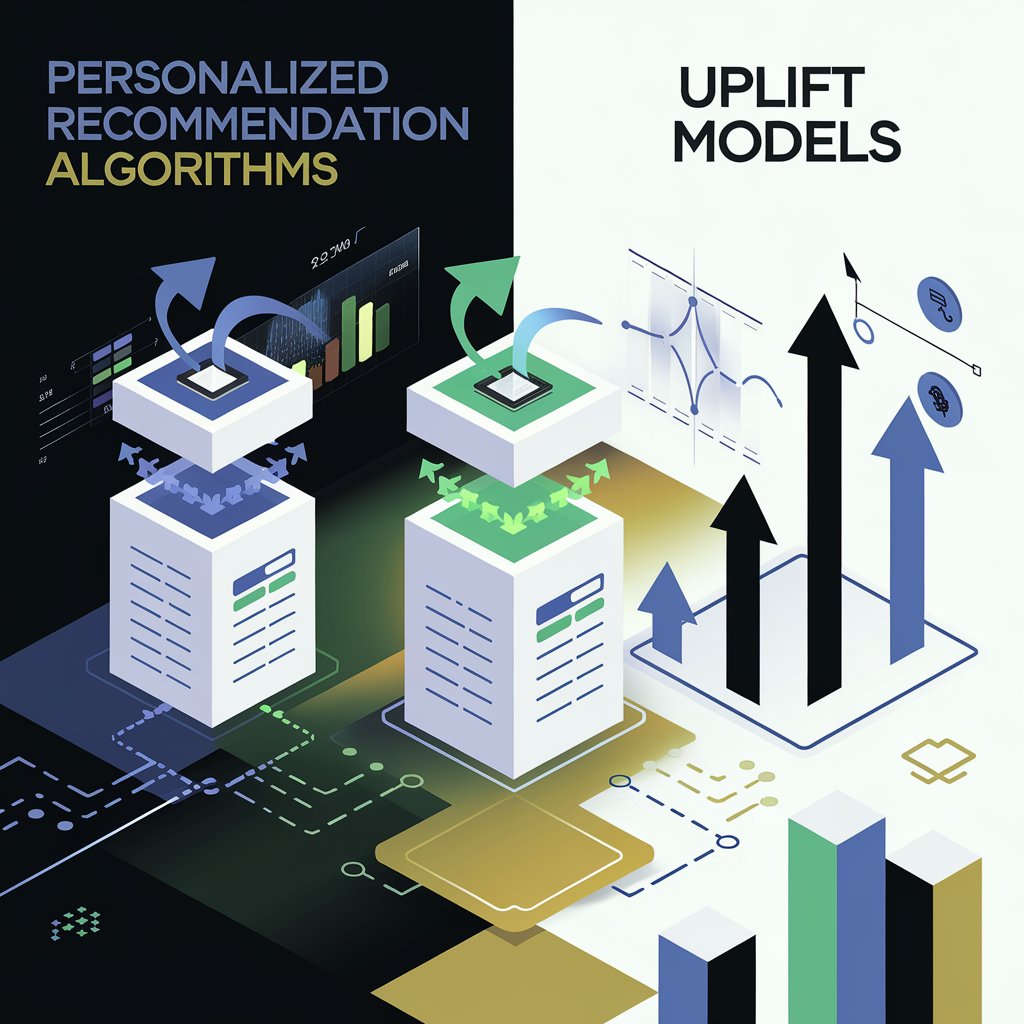Importance of Personalized Recommendations
In the realm of customer engagement and driving conversions, the role of personalized recommendations cannot be understated. By integrating machine learning for personalized recommendations, businesses can significantly enhance customer engagement and boost their conversion rates.
Enhancing Customer Engagement
According to Accenture, personalized recommendations play a pivotal role in engaging customers. Nine out of 10 consumers are more likely to shop with brands that provide relevant offers and recommendations. This statistic underscores the importance of tailoring recommendations to individual preferences and behaviors. By offering personalized suggestions that cater to the unique needs and interests of each customer, you can create a more immersive and rewarding shopping experience.
To leverage the full potential of personalized recommendations in enhancing customer engagement, it’s essential to delve into personalized recommendation algorithms. These algorithms analyze customer data, such as browsing history and purchase patterns, to deliver tailored recommendations that resonate with each individual.
Impact on Conversions
The impact of personalized recommendations extends beyond customer engagement and directly influences conversions. Studies have shown that implementing personalized recommendation strategies can lead to a significant increase in conversions for businesses. In fact, recommendations have been linked to a 16% boost in conversions, highlighting their effectiveness in driving sales and revenue.
Consumers today have high expectations when it comes to personalized experiences. A staggering 67% of consumers expect relevant product or service recommendations from brands, with 76% indicating that they are more likely to make a purchase from brands that offer personalized services. This emphasis on personalization is further emphasized by the fact that 91% of consumers are more inclined to choose brands that provide exclusive customer experiences.
To capitalize on the impact of personalized recommendations on conversions, businesses need to embrace cutting-edge technologies like uplift models and two-tower architecture. These advanced models enable companies to create hyper-personalized recommendations that drive conversions and foster long-lasting customer relationships.
In today’s competitive landscape, the ability to deliver tailored and relevant recommendations can set your business apart and drive sustainable growth. By harnessing the power of machine learning for personalized recommendations, you can not only enhance customer engagement but also propel your conversions to new heights, ultimately positioning your brand for success in the digital age.
Growth and Adoption of Recommendation Engines
In the realm of personalized and relevant recommendations using two tower models and uplift models, understanding the market trends and investment requirements plays a pivotal role in shaping successful customer engagement strategies.
Market Trends
The global market for recommendation engines is on a trajectory of substantial growth, with projections indicating a significant increase in adoption. In 2018, the market stood at US$1.14 billion, and forecasts suggest it will soar to US$12.03 billion by 2025 (Appier). Companies across various industries are recognizing the importance of leveraging machine learning for personalized recommendations to enhance customer experiences and drive revenue growth.
The implementation of personalized recommendation algorithms has shown to have a direct impact on revenue generation. For instance, leveraging product recommendations based on artificial intelligence and machine learning can result in a revenue increase of up to 26%. These trends underscore the critical role that recommendation engines play in modern business strategies, particularly in the e-commerce and retail sectors.
Investment Requirements
Investing in recommendation engines is a strategic decision that can yield significant returns for companies willing to embrace this technology. Industry leaders like Netflix have demonstrated the value of robust recommendation systems, with their AI-driven system estimated to be worth nearly $1 billion, contributing to increased engagement and reduced customer churn (Arize).
To effectively harness the power of machine learning for personalized recommendations, companies must allocate resources towards acquiring the necessary technology, talent, and infrastructure. This includes investing in cutting-edge AI and machine learning tools, as well as the expertise required to develop and optimize recommendation algorithms tailored to the unique needs of their audience.
By staying abreast of market trends and making strategic investments in recommendation systems, organizations can position themselves for success in an increasingly competitive landscape. The ability to deliver personalized and relevant recommendations at scale offers a competitive edge, driving customer engagement, loyalty, and ultimately, business growth.
Leveraging AI and Machine Learning
When it comes to enhancing customer engagement and driving conversions, leveraging AI and machine learning for personalized recommendations can be a game-changer for companies like yours. By analyzing consumer behavior and tailoring marketing strategies, you can create more meaningful interactions with your customers, leading to improved business outcomes.
Analyzing Consumer Behavior
AI and machine learning have revolutionized the way businesses analyze consumer behavior. These technologies enable you to delve into vast amounts of data and extract valuable insights regarding your customers’ preferences and interests. By understanding the patterns in consumer behavior, you can predict their future actions and anticipate their needs, allowing you to offer personalized recommendations that resonate with each individual.
By incorporating AI-driven analysis of consumer behavior into your marketing strategies, you can create a more tailored approach to engaging with your audience. This deep understanding of your customers can help you segment your target audience effectively and deliver relevant content that speaks to their unique needs and desires. For more information on personalized recommendation algorithms, check out our article on personalized recommendation algorithms.
Tailoring Marketing Strategies
Tailoring your marketing strategies based on the insights derived from consumer behavior analysis is key to maximizing the impact of personalized recommendations. Machine learning empowers you to craft targeted campaigns that resonate with specific customer segments, driving higher engagement and conversion rates.
Personalized recommendation strategies play a crucial role in digital marketing, enabling you to deliver the right message to the right audience at the right time. By harnessing the power of AI and machine learning, you can create dynamic and adaptive marketing campaigns that respond to individual preferences and behaviors. For more on uplift models in recommendation systems, visit our article on uplift models in recommendation systems.
Incorporating AI and machine learning into your marketing efforts can result in a 16% increase in conversions for your business, as highlighted by Appier. To fully harness the potential of recommendation engines, ensure your team includes individuals with a deep understanding of the technology and your business domain. This expertise is crucial for developing and implementing personalized marketing strategies that drive growth and engagement. For insights on best practices for personalized recommendation strategies, refer to our article on personalized recommendation strategies.
By analyzing consumer behavior effectively and tailoring marketing strategies based on these insights, you can unlock the power of AI and machine learning to deliver personalized recommendations that resonate with your customers and drive business success.
Strategies for Effective Recommendations
To enhance the effectiveness of your personalized recommendations and elevate customer engagement, certain strategies need to be implemented within your organization. By focusing on hiring specialized staff and harnessing technology expertise, you can optimize the utilization of machine learning for personalized recommendations and propel your marketing efforts to new heights.
Hiring Specialized Staff
Building and maintaining an effective recommendation engine requires specialized staff with the expertise to handle the intricacies of the system. According to Appier, investing in the right personnel is essential for constant monitoring and refinement of your recommendation algorithms. These professionals play a crucial role in interpreting data insights, fine-tuning algorithms, and ensuring that the recommendations align with your business goals and customer preferences.
Data scientists and analysts are instrumental in understanding the nuances of personalized recommendation algorithms, optimizing their performance, and adapting them to dynamic market trends. By employing individuals with a deep understanding of technology and your specific business domain, you can leverage the full potential of recommendation engines to drive personalized marketing strategies that resonate with your target audience (Appier).
Utilizing Technology Expertise
In the realm of personalized recommendations, technology expertise is paramount for extracting actionable insights from vast amounts of data. Machine learning algorithms play a pivotal role in analyzing consumer behavior and preferences, empowering businesses to predict customer choices and tailor marketing strategies accordingly (BuzzBoard).
Embracing AI and machine learning technologies can level the playing field for both small and large businesses, enabling them to create highly targeted and personalized marketing campaigns that resonate with their audience (BuzzBoard). By staying abreast of the latest advancements in technology and applying them judiciously to your recommendation engines, you can drive business growth, improve efficiency, and enhance the relevance of your digital marketing endeavors.
By hiring specialized staff and leveraging technology expertise, you can unlock the full potential of personalized recommendation strategies and stay ahead in the competitive landscape of digital marketing. These strategic approaches will not only enhance customer engagement but also lead to an uplift in conversions and customer satisfaction.
Types of Recommendation Models
To revolutionize customer engagement and enhance your business’s conversions, understanding the different types of recommendation models is essential. Here, we will explore three key recommendation models: Content-Based Filtering (CBF), Collaborative Filtering (CF), and Hybrid Filtering.
Content-Based Filtering (CBF)
Content-Based Filtering (CBF) focuses on providing recommendations by identifying similarities in specific attributes of items available. This model creates data profiles based on descriptive information related to the items being recommended. CBF operates on the premise that users who have shown interest or liked specific items in the past are likely to appreciate similar items in the future. By leveraging the characteristics and features of items, CBF can effectively suggest relevant products or content that align with a user’s preferences and past interactions.
For a more in-depth look at how CBF works and its application in personalized recommendations, refer to insights from Altexsoft.
Collaborative Filtering (CF)
Collaborative Filtering (CF) is another widely used recommendation model that relies on the interactions between users and target items. This technique groups users with similar tastes and preferences to predict their reactions and preferences towards items they have not yet encountered. By analyzing user behavior and feedback, CF can recommend items that are likely to be of interest to a particular user based on the preferences of similar users.
To learn more about how CF operates and its impact on personalized recommendations, dive deeper into the insights provided by Altexsoft.
Hybrid Filtering
Hybrid Filtering represents a fusion of various recommendation techniques, such as collaborative filtering and content-based filtering, with the aim of enhancing the accuracy and effectiveness of recommendations while addressing limitations present in individual models. By combining multiple approaches, Hybrid Filtering strives to provide more precise and relevant recommendations, especially in scenarios where data sparsity and the cold start problem pose challenges.
The hybrid approach is a strategic way to leverage the strengths of different recommendation models and mitigate their weaknesses. To gain a comprehensive understanding of how Hybrid Filtering can optimize recommendation systems, explore the detailed insights shared by Altexsoft.
By incorporating a combination of these recommendation models based on your specific business needs and customer engagement goals, you can create a robust and personalized recommendation system that significantly impacts customer satisfaction, retention, and overall business growth.
Challenges and Solutions
One of the key challenges faced by companies implementing personalized recommendation systems is addressing data sparsity. In the realm of e-commerce platforms, users typically interact with only a small fraction of the products available, leading to sparse data in the recommendation system (Medium). Collaborative filtering algorithms, which rely on user-item interactions, struggle to provide accurate recommendations in sparse data scenarios.
To combat data sparsity and enhance the performance of recommendation systems, advanced techniques such as matrix factorization and data imputation are employed. These methods help in filling the gaps created by sparse interactions, allowing the system to make more informed and relevant recommendations to users.
Overcoming the Cold Start Problem
Another significant challenge in personalized recommendation systems is the cold start problem. This issue arises when the system is unable to generate recommendations for new users or items with limited historical data (Medium). The lack of sufficient data for these entities makes it challenging for traditional recommendation algorithms to provide accurate suggestions.
To address the cold start problem, companies must employ innovative solutions that leverage multiple data sources and user feedback. Uplift models, which predict the incremental impact of recommendations, can play a crucial role in generating personalized suggestions for users with limited interaction history (Appier).
By combining data from various sources and employing sophisticated algorithms, companies can mitigate the challenges posed by the cold start problem and deliver tailored recommendations to all users, including those with limited historical behavior data.
Successfully navigating the challenges of data sparsity and the cold start problem is essential for companies looking to revolutionize customer engagement through personalized recommendations. By investing in advanced technologies and strategies, organizations can enhance the effectiveness of their recommendation engines and drive significant improvements in customer engagement and conversions.



